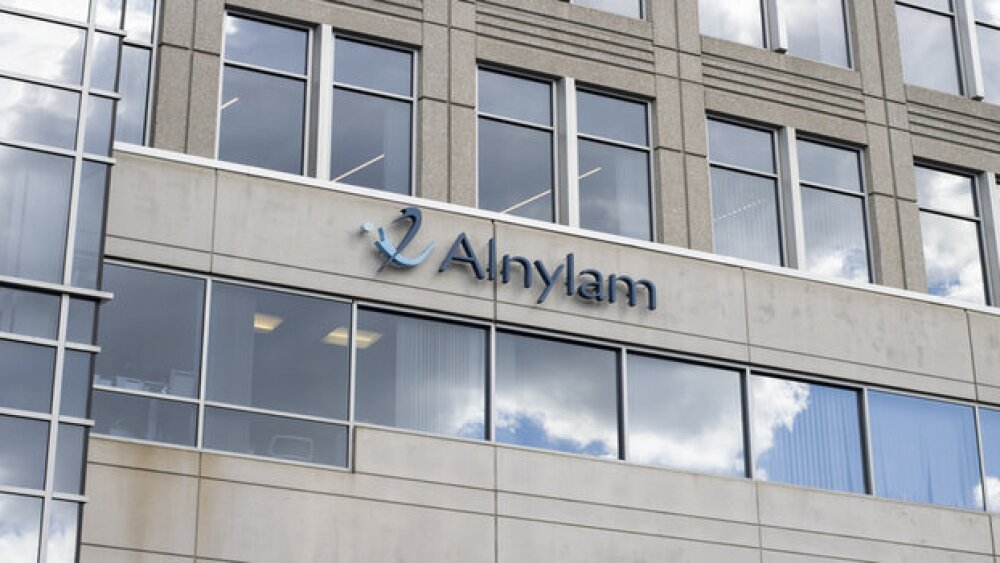Following the regulator’s denial of patisiran’s label expansion, Alnylam has published late-stage data for the RNAi therapeutic in The New England Journal of Medicine demonstrating its efficacy in ATTR-cardiomyopathy.
Pictured: Alnylam building in Cambridge, Massachusetts/iStock, hapabapa
Alnylam Pharmaceuticals on Wednesday announced that the results of the Phase III APOLLO-B study, assessing its investigational patisiran as a treatment for cardiomyopathy in transthyretin amyloidosis (ATTR), have been published in The New England Journal of Medicine.
Patisiran met its primary endpoint, significantly slowing the decline in the six-minute walk distance at 12 months compared with placebo. Treatment likewise resulted in significant improvements in health status and quality of life, a key secondary endpoint of APOLLO-B.
Another secondary endpoint—a composite of all-cause mortality, change from baseline in six-minute walk distance and the frequency of cardiovascular events—trended in favor of patisiran but fell short of statistical significance.
New findings presented in the NEJM paper were from a post-hoc analysis of the primary endpoint. Even in a subgroup of patients whose walking disabilities at baseline could not be attributed to neuropathy, patisiran still induced significant improvements in the six-minute walking distance, suggesting that its therapeutic effect was not a result on its established benefit on polyneuropathy.
These data from APOLLO-B “further our conviction that TTR silencing with an RNAi therapeutic can have a positive therapeutic impact on patients with the cardiomyopathy of ATTR amyloidosis,” Alnylam CMO Pushkal Garg said in a statement.
Patisiran is an injectable double-stranded siRNA therapeutic that targets and binds the mRNA molecule for transthyretin. This reduces the overall levels of the protein and helps prevent the disease-causing accumulation of misfolded transthyretin, which would otherwise damage different organs in the body.
The siRNA therapeutic won the FDA’s approval in August 2018 for the treatment of polyneuropathy in ATTR amyloidosis, for which it is marketed under the brand name Onpattro. Alnylam in December 2022 sought to expand its label to also include cardiomyopathy in this disease, providing data from APOLLO-B and post-marketing safety data from the study to build its case.
The Cambridge-based biotech even secured the backing of the FDA’s Cardiovascular and Renal Drugs Advisory Committee in September 2023, which voted 9-3 in favor of patisiran.
However, the FDA still denied to approve the label expansion, citing a lack of evidence of patisiran’s benefit in its proposed indication. As a result of the regulator’s rejection, Alnylam said that it will no longer do work to develop Onpattro for ATTR-cardiomyopathy in the U.S.
Nonetheless, the company is not giving up on its RNAi approach to the disease and is instead advancing another RNAi therapeutic, vutrisiran, which is also approved as Amvuttra for hereditary ATTR with polyneuropathy.
Alnylam is expecting to release topline data from the Phase III HELIOS-B study of investigational vutrisiran in ATTR-cardiomyopathy in early 2024, Garg said in Wednesday’s announcement.
Tristan Manalac is an independent science writer based in Metro Manila, Philippines. He can be reached at tristan@tristanmanalac.com or tristan.manalac@biospace.com.






